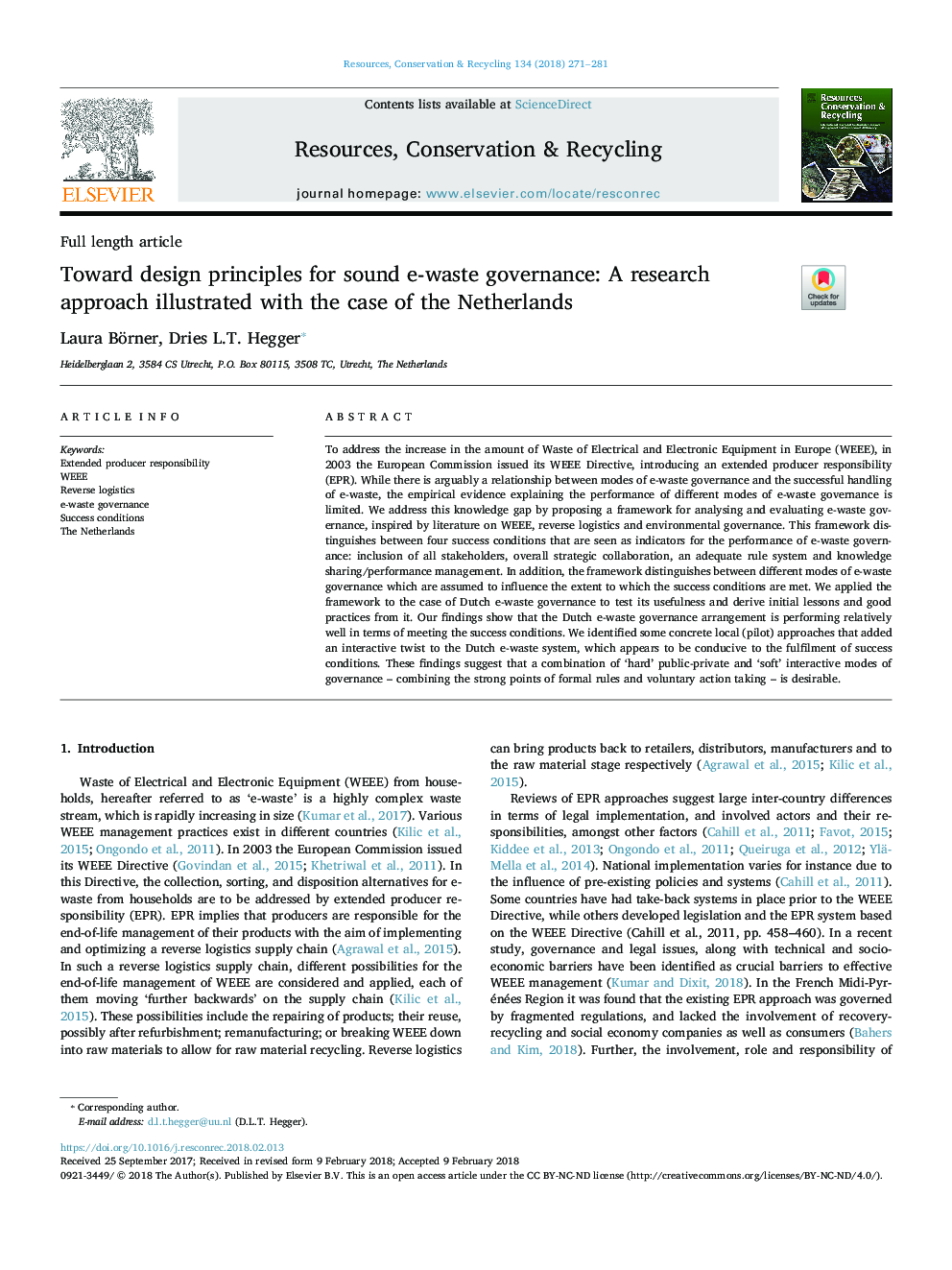| کد مقاله | کد نشریه | سال انتشار | مقاله انگلیسی | نسخه تمام متن |
|---|---|---|---|---|
| 7494224 | 1485658 | 2018 | 11 صفحه PDF | دانلود رایگان |
عنوان انگلیسی مقاله ISI
Toward design principles for sound e-waste governance: A research approach illustrated with the case of the Netherlands
ترجمه فارسی عنوان
در راستای اصول طراحی برای مدیریت صحیح ضایعات الکترونیکی: یک رویکرد پژوهشی در مورد هلند نشان داده شده است
دانلود مقاله + سفارش ترجمه
دانلود مقاله ISI انگلیسی
رایگان برای ایرانیان
کلمات کلیدی
موضوعات مرتبط
مهندسی و علوم پایه
مهندسی انرژی
انرژی های تجدید پذیر، توسعه پایدار و محیط زیست
چکیده انگلیسی
To address the increase in the amount of Waste of Electrical and Electronic Equipment in Europe (WEEE), in 2003 the European Commission issued its WEEE Directive, introducing an extended producer responsibility (EPR). While there is arguably a relationship between modes of e-waste governance and the successful handling of e-waste, the empirical evidence explaining the performance of different modes of e-waste governance is limited. We address this knowledge gap by proposing a framework for analysing and evaluating e-waste governance, inspired by literature on WEEE, reverse logistics and environmental governance. This framework distinguishes between four success conditions that are seen as indicators for the performance of e-waste governance: inclusion of all stakeholders, overall strategic collaboration, an adequate rule system and knowledge sharing/performance management. In addition, the framework distinguishes between different modes of e-waste governance which are assumed to influence the extent to which the success conditions are met. We applied the framework to the case of Dutch e-waste governance to test its usefulness and derive initial lessons and good practices from it. Our findings show that the Dutch e-waste governance arrangement is performing relatively well in terms of meeting the success conditions. We identified some concrete local (pilot) approaches that added an interactive twist to the Dutch e-waste system, which appears to be conducive to the fulfilment of success conditions. These findings suggest that a combination of 'hard' public-private and 'soft' interactive modes of governance - combining the strong points of formal rules and voluntary action taking - is desirable.
ناشر
Database: Elsevier - ScienceDirect (ساینس دایرکت)
Journal: Resources, Conservation and Recycling - Volume 134, July 2018, Pages 271-281
Journal: Resources, Conservation and Recycling - Volume 134, July 2018, Pages 271-281
نویسندگان
Laura Börner, Dries L.T. Hegger,
